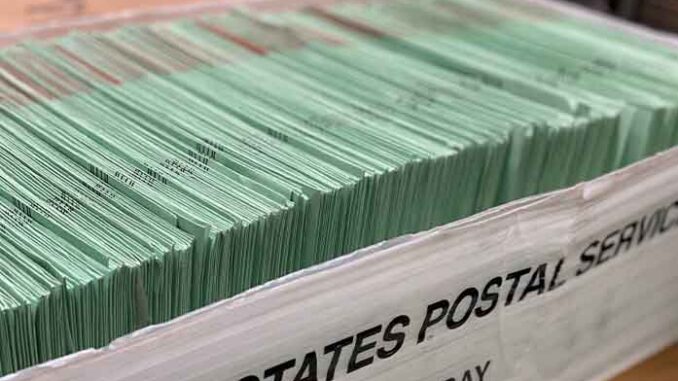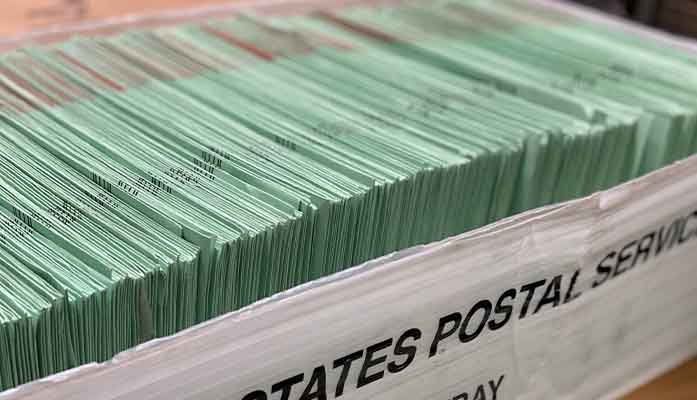
The doubts and unanswered questions from the 2022 election will forever remain; after this month, Arizona’s 15 counties will have destroyed those ballots.
Arizona law requires counties to destroy ballots 24 months (two years) after completing the canvass of that election.
Arizona’s counties moved on and destroyed 2022 election ballots after the Arizona Supreme Court decision earlier this month denying to take up any further challenges to that election from then-candidates Kari Lake, Abe Hamadeh, and Mark Finchem.
My military veteran husband’s ballot for Abe Hamadeh was one of the 9,000 that never got counted. https://t.co/DwFOJfmXOE
— Wendy Rogers (@WendyRogersAZ) November 29, 2024
For Lake and Finchem, their campaign losses combined with the ballot destruction put a finality on the ruling against them from the state’s highest court, closing that door on their political aspirations (at least, for now). Hamadeh, however, won his congressional race and will serve in a higher office than originally sought.
Even if the Supreme Court had ruled in favor of the three GOP candidates, the counties may still have stayed on their prescribed schedule to destroy the ballots.
In September, counsel on behalf of the plaintiffs (voters, Hamadeh, and the Republican National Committee) sent a notice to all 15 county attorneys reminding them to abide by a “litigation hold,” which meant they were advised to not destroy the 2022 general election ballots and documents since the election results were still being contested in Kentch v. Mayes.
Only one county responded to the notice, according to email records shared with the Arizona Daily Independent. In October, Pinal County deputy attorney Craig Cameron responded that they would destroy the 2022 ballots absent a court order explicitly instructing the preservation of those ballots.
“Since there has been no court order preventing us from acting in accordance with statute, we will be destroying ballots from 2022 in accordance with the required schedule,” said Cameron.
At the start of the month, the plaintiffs petitioned the Arizona Supreme Court to issue an order enjoining the counties from destroying the 2022 ballots.
“The 2022 ballots are directly relevant to this matter, and their destruction would severely prejudice Petitioners by effectively annihilating their case, as they would be unable to prove their claims if this Court were to grant review and Petitioners’ requested relief,” stated the notice.
Days after this last election, the Arizona Supreme Court did away with the multiple GOP-led challenges to the 2022 election.
The 2022 election occurred with quite a few hitches, and the results presented a number of uncertainties. Concerns arose with tabulation errors (namely undervotes) and election printer malfunctions on Election Day.
These issues were most prominent in Hamadeh’s race, where the then-Republican attorney general candidate lagged by just over 500 votes — a margin that would later nearly halve to under 300 after a mandatory recount of the ballots.
Hamadeh’s counsel, Ryan Heath, had argued in the case rejected by the Arizona Court of Appeals that Maricopa County had improperly included hundreds of invalid early ballots. Without those ballots, Heath argued, Hamadeh would have gained the majority and won; additionally, there would have been insufficient votes to pass the proposition granting in-state tuition to Dreamers.
The merit of Heath’s claims about the validity of the ballots wasn’t the deciding factor for the court: instead, the Arizona Court of Appeals ruled that particular 2022 election challenge was brought on too late.

